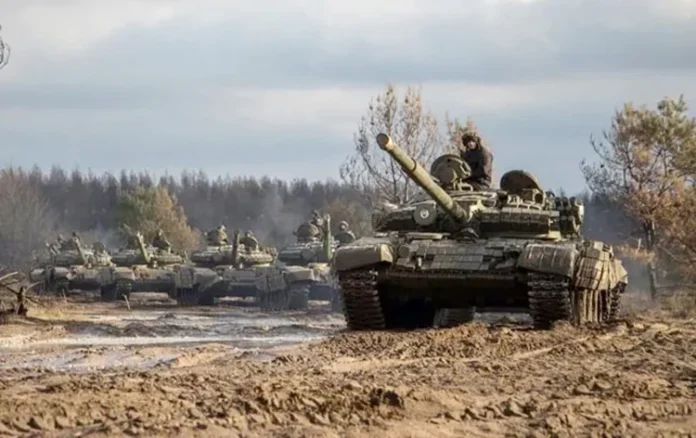Just days before Russia’s “Special Military Operation” to ‘demilitarise and denazify’ Ukraine entered into eighth month, President Vladimir Putin in his televised address to the nation announced partial mobilisation to recall 300 thousand reservists to defend captured territories which is equal to little over one percent of total – about 3 million reservists in the country.
What was believed to be a quick and swift military operation lasting a few days or weeks has dragged on into the eighth month and with no end in sight. According to local military experts the reservists called for duty could be deployed only in 3 months by the end of year. It is not ruled out that totally one million reservists could be mobilised by the next summer if no agreement is reached to cease the hostilities. On the contrary, there are chances of escalation as the US-led West wants nothing less than Russia’s military defeat, and this explains President Putin’s dire nuclear warning to NATO.
What went wrong with Russia’s initial plan? The much talked about 64 km long armoured column moving towards Ukrainian capital Kiev and capture of key military installations around it by Russian special forces had led to President Wolodimyr Zelinsky announcing peace talks with Moscow and declaring that Ukraine will not seek NATO membership and was ready to discuss status of Crimea annexed by Russia in 2014 and Donbass. Two rounds were held in neighbouring Belarus and with widening agreements a round of foreign ministers’ level was held in Turkey. However, UK Prime Minister Boris Johnson threw a spanner in peace efforts by visiting Kiev in April and told the Ukrainian leader to continue war with Russia and offered military and financial support to Kiev in defeating the British Empire’s old time rival.
With growing western weapon supplies, Moscow found itself at the receiving end. It is always easy to start a military campaign than to wind it up. After Boris Johnson’s Kiev visit, the British and US military establishments found them in the driver’s seat and a greater escalation is expected at the expense of the EU and Ukraine as the Kremlin seems resigned to go through a long-drawn war at any cost but defeat.
But even today we can draw some conclusions which should be seriously analysed by our military planners:
Great powers in their military reforms in past decades have been focusing on “lean but mean” armed forces with hi-tech smart weapons. Russia which swiftly captured two nuclear power plants in Ukraine with the help of its Spetsnaz special forces, however, bogged down due to shortage of ‘‘boots on the ground”. Even after twenty years of war in Afghanistan with the allegedly the “best weapons” in the World, the US had to stage a hasty and disorderly exodus as the Taliban captured Kabul. The Kremlin’s partial mobilisation is precisely aimed at to rectify this situation.
– The writer is a Moscow-based independent analyst. Views are personal.
–The writer is a Moscow-based independent defence analyst. The views expressed are personal and do not necessarily reflect the
views of Raksha Anirveda






